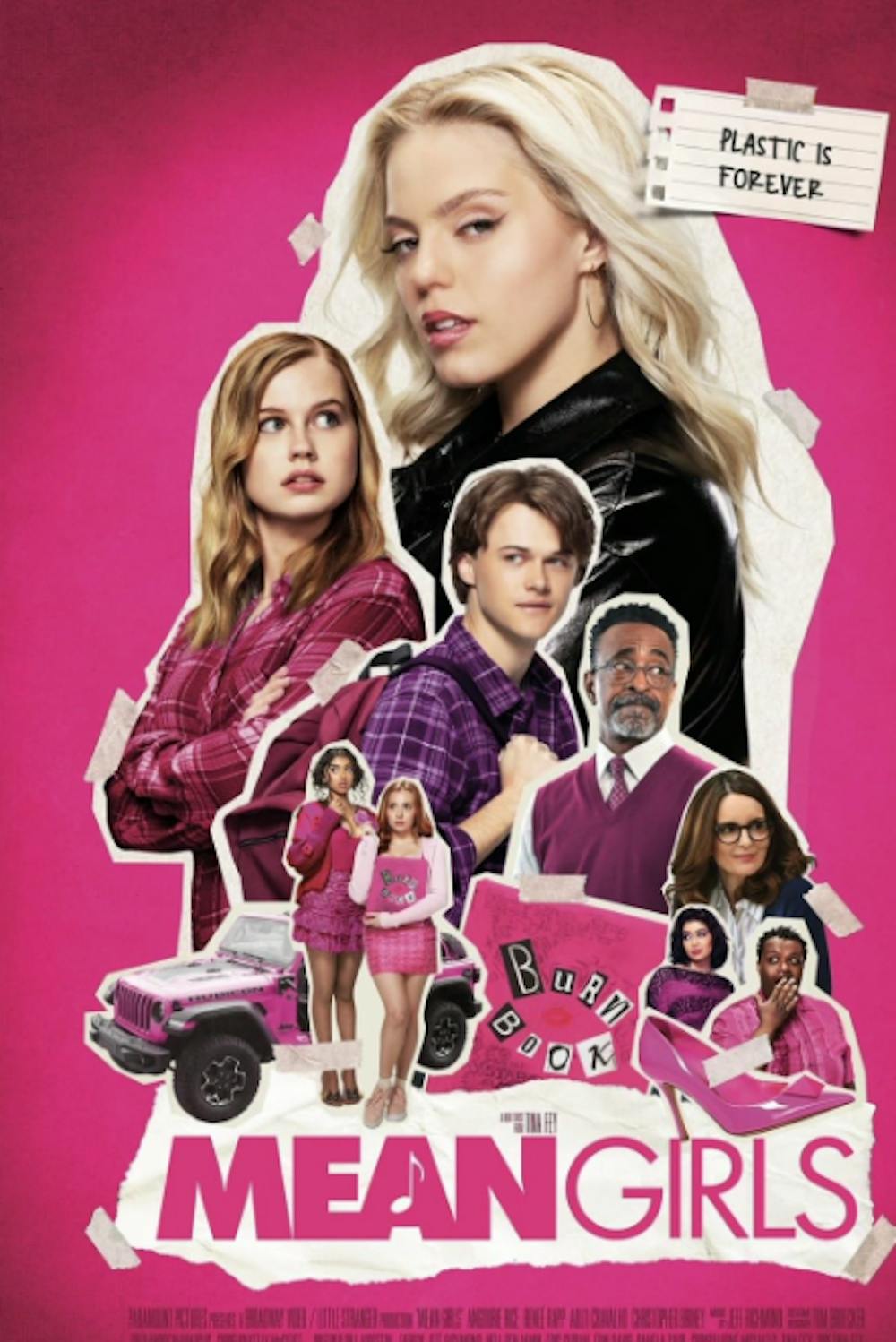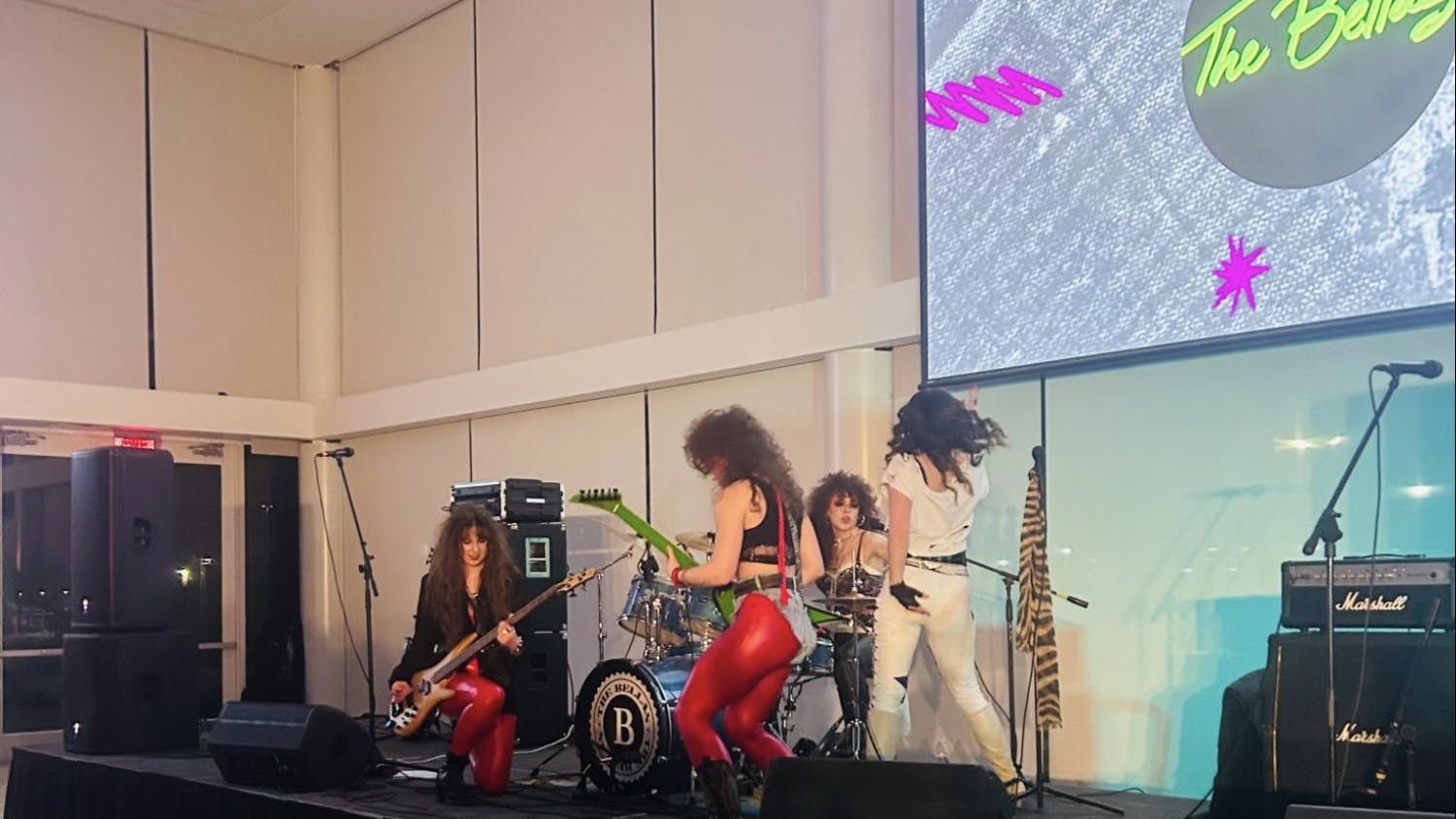By Lake DiStefano
Staff Writer
As of late, the film industry has had an ongoing trend of adapting musicals into films, with marketing strategies hellbent on covering that fact up — 2023’s “Wonka” being among the most recognizable examples.
The most recent instance of this odd branding is the new “Mean Girls” film, which was released on Jan. 12. It featured minimal singing in its trailers, and instead focused on advertising itself as a modern version of the original 2004 film.
When I first noticed this about the project, I assumed it was done for purely monetary reasons. The word musical is the quickest way to scare off audiences, so it seemed reasonable to me that this tagline of a new “Mean Girls” was simply to draw in potential viewers.
However, after watching the film, I must concede that this is certainly a modern “Mean Girls.”
Confusingly and unfortunately, this version of “Mean Girls” attempts to be two separate things: a modern version of the original movie, as well as a film adaptation of the Broadway show. Unsurprisingly, it fails at both.
To the film’s credit, it bends over backwards to make this a reality. It awkwardly positions its fragments of plot in a feeble attempt to make this hybrid version of the story work.
It does this by sacrificing many iconic scenes for the musical numbers, as well as cutting many songs from the original stage production in favor of more spoken-word scenes. This lends itself to a non-committal feeling, in which the two halves of the film are at odds the entire runtime.
There’s not enough musical, and there’s not enough movie, leaving the viewer feeling unsatisfied no matter which half they prefer.
As for how each half fares in isolation, there is not much quality to find there either. For example, the parts of the film attempting to be a modern version of the original struggle because of the sheer impossibility of the idea.
“Mean Girls,” with all its now-offensive jokes, is a period piece. It is a story that only works under the context of early 2000s America. Attempting to reconstruct that, while adding new aspects to help it blend in with the now, comes off as disingenuous.
The inclusion of TikTok within the film, as well as social media as a whole, feels more tacky than it does original. I found myself rolling my eyes at these scenes, along with the present — albeit not too egregious — product placements.
It also doesn’t help that some of the jokes from the original were removed and censored. These include iconic lines like “that is social suicide,” which was changed to “socially ruinious.”
All the fat-jokes and slut-shaming from the original are either neutered beyond belief or removed entirely, with their replacements sounding more corny and elementary than anything.
This leads into one of the worst problems with the film: the “Mean Girls” just don’t feel mean enough.
The “Mean Girls” are supposed to be terrible people. The film’s ironic humor is in the idea that they don’t even hold up to the same standards of morality they weaponize against each other. It's both a smart and funny commentary on how pointless high-school brutality between women is.
It’s exactly why the scene where the girls all confess to being less than saintly hits. Almost everyone in the original film has some sort of overblown vice — even the supposed good guys like Janis and Cady — which makes them more interesting and complex characters.
This leads to further issues with the film, such as Regina feeling significantly less threatening and Cady’s transition into being a plastic happening entirely through a montage, as opposed to a slow corruption.
As for the musical aspects of the film, they end up feeling either underwhelming or downright annoying. There were multiple points where I internally groaned, as the characters began to sing.
“Stupid With Love” felt particularly grating. Not only was it musically uninteresting, it also wasn’t shot in a very compelling way. Its inclusion feels especially shallow when other songs, such as “Meet the Plastics,” had multiple verses cut.
Despite the film’s many blunders, Reneé Rapp’s “World Burn” is a truly great moment. The opening drums are placed throughout the film's background ambience, almost like a brewing storm, foreshadowing Regina's breaking point. Rapp’s powerhouse vocals really shine through here, and for a brief moment, I recognized the Regina George we all learned to fear back in 2004.
2024’s “Mean Girls,” while a valiant effort, fails to accomplish anything it sets out to do. You’d be much better off spending your ticket money on renting the original instead.







